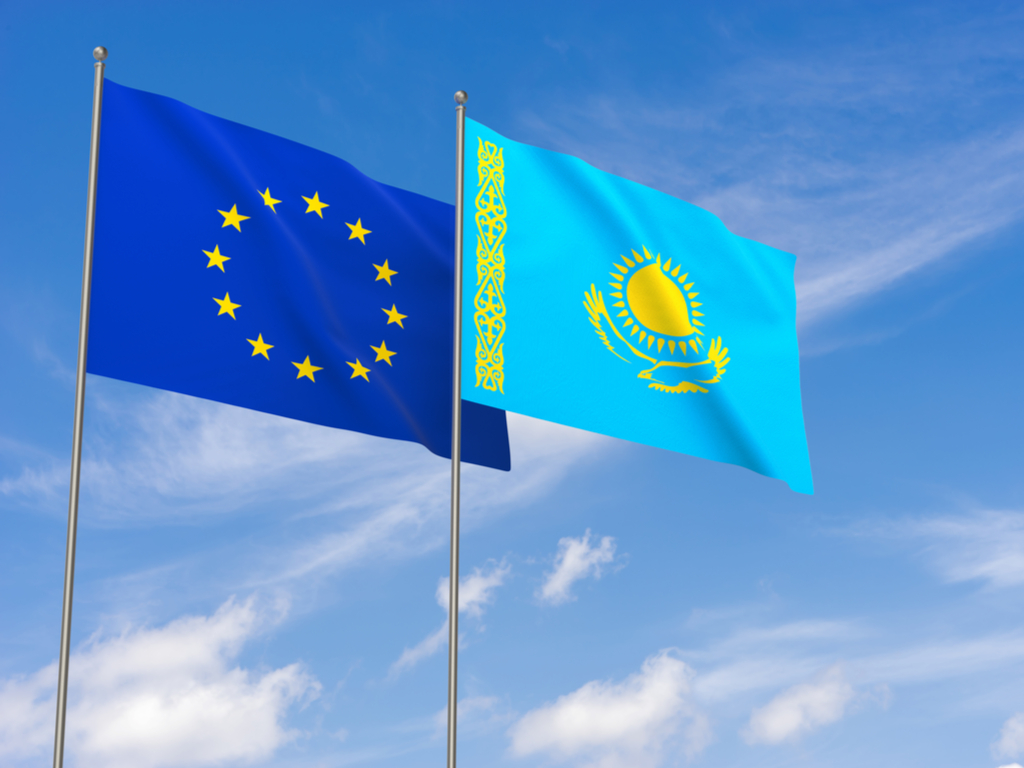On 18-19 November in Nur-Sultan, the European Union and Kazakhstan held their 17th Subcommittee on Justice and Home Affairs and 11th Human Rights Dialogue. This year the annual meetings took place at a time of political change for Kazakhstan and a pivotal moment for EU-Kazakhstan bilateral relations with the ratification by all EU Member States of the EU-Kazakhstan Enhanced Partnership and Cooperation Agreement (EPCA), the Delegation of the European Union to Kazakhstan said.
On 18 November, during the Subcommittee on Justice and Home Affairs, Kazakhstan gave a comprehensive overview of reform undertaken in the field of advocacy and legal assistance with the aim of improving the independence of the judiciary and transparency. The EU reaffirmed its support to the rule of law and presented the new regional Rule of Law programme with an increased budget of EUR 8 million.
The EU and Kazakhstan discussed their commitment to tackling corruption and Kazakhstan’s accession to the Council of Europe’s Group of States against Corruption (GRECO).
The EU and Kazakhstan exchanged views on the importance of international and regional cooperation in countering terrorism and prevention of violent extremism and the experience of Kazakhstan in dealing with Foreign Terrorist Fighters. Other areas discussed were migration, asylum and border management, tackling illicit drugs and the fight against human trafficking.
On 19 November, during the Human Rights Dialogue, the EU and Kazakhstan had an open discussion on a broad range of human–rights related areas. The EU acknowledged the recent review of Kazakhstan at the 34th session of the Universal Periodic Review, recognising the positive steps such as the ratification of the Convention on the Rights of Persons with Disabilities, the Convention against Discrimination in Education, as well as ongoing efforts to combat torture and violence against women and children.
Taking into account consultations with civil society and the European Parliament Resolution on the Situation of Human Rights in Kazakhstan (March 2019), the importance of addressing obstacles to freedom of expression and information, including Article 174 of the Criminal Code were discussed. The EU raised concerns in relation to arrests of peaceful demonstrators and called on Kazakhstan to continue to take steps to foster an enabling environment for lawyers, journalists and NGOs. Kazakhstan informed on the ongoing review of the Law on Peaceful Assembly. The EU enquired about legislation related to trade unions, in this regard the implementation of ILO Convention 87 was stressed.
The importance of unhindered access to detention facilities for independent monitoring was raised, allowing for investigation of acts of torture and rehabilitation of victims.
The EU reiterated its invitation to Kazakhstan to join the European Union and the United Nations Spotlight Initiative on eliminating all forms of violence against women and girls. The participants also discussed freedom of religion and belief and cooperation in multilateral fora, including the importance of openness to UN scrutiny and visits of UN Special Rapporteurs, and working closely with the OSCE.
The EU delegation was headed by Mr Boris Iarochevitch, Head of Division of the European External Action Service Central Asia Division. The delegation of Kazakhstan was headed by Mr Bolat Dembaev, Deputy General Prosecutor of Kazakhstan.




